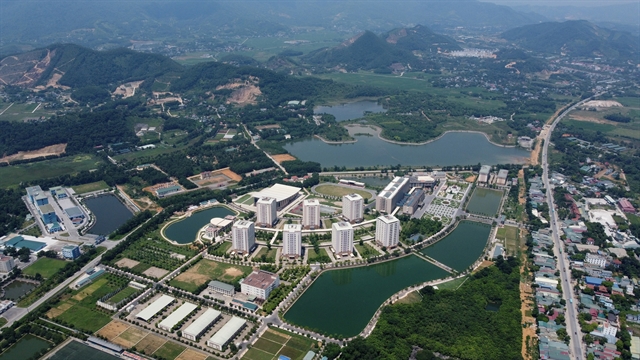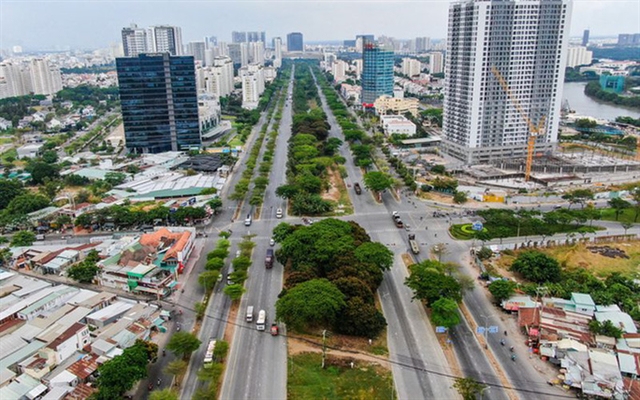 Society
Society

 |
| Real estate developers in Bình Chánh, Hóc Môn, Cần Giờ, Củ Chi, and Nhà Bè districts must complete housing projects prior to transferring land ownership. — VNA/VNS Photo |
HCM CITY — HCM City authorities have banned the subdivision of land for sale in five suburban districts in an effort to address speculation due to rapid urbanisation in these areas.
Under the decision, real estate developers in Bình Chánh, Hóc Môn, Cần Giờ, Củ Chi, and Nhà Bè districts must complete housing projects prior to transferring land ownership.
The move is in accordance with the revised 2023 Real Estate Business Law, which aims to prevent illegal construction activity.
However, an exception has been made for projects intended for resettlement that utilise land in communes, towns, and districts.
For such projects, developers are required to provide written notification to the government and are subject to oversight and inspection concerning the construction of technical infrastructure.
Previously, the 2014 law permitted certain subdivisions in rural areas, however, the new regulations impose stricter controls.
The Department of Construction said the prohibition aims to prevent unauthorised construction and ensure compliance with architectural regulations.
In response, the HCM City Real Estate Association (HoREA) said the ban lacks a legal foundation and is inconsistent with existing law.
Lê Hoàng Châu, chairman of HoREA, said these suburban districts remain largely rural, with high demand for land purchases and transfers for residential construction.
Recently, the city government announced plans to accelerate the urbanisation of the five outlying districts to make them urban districts by 2030.
Specifically, Bình Chánh, Nhà Bè, and Hóc Môn are anticipated to achieve urban status by 2025, with Củ Chi and Cần Giờ projected to follow by 2030.
These districts have seen substantial urban development, including the establishment of new urban areas and enhancements to infrastructure.
But experts have cautioned urbanisation may lead to increased land prices and speculation, particularly with the conversion of agricultural land.
In a related move, Vietnamese authorities are revising tax policies associated with the real estate market to deter speculative trading and stabilise land and housing prices, including levies on individuals owning multiple properties.
Experts have warned speculation is a key factor causing recent property price inflation in major cities such as HCM City and Hà Nội. — VNS




